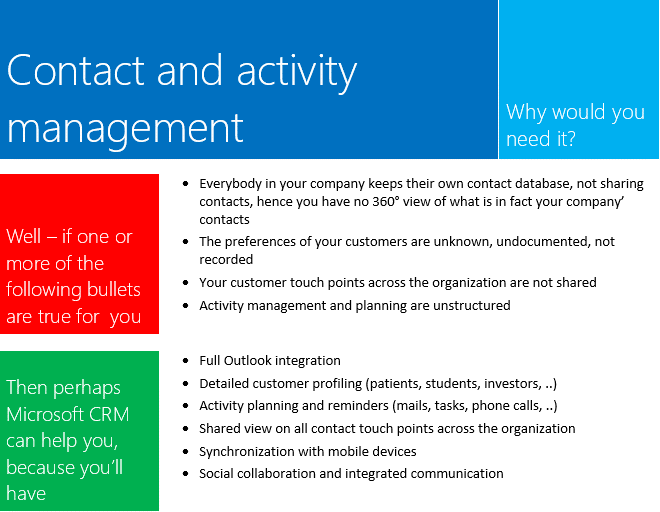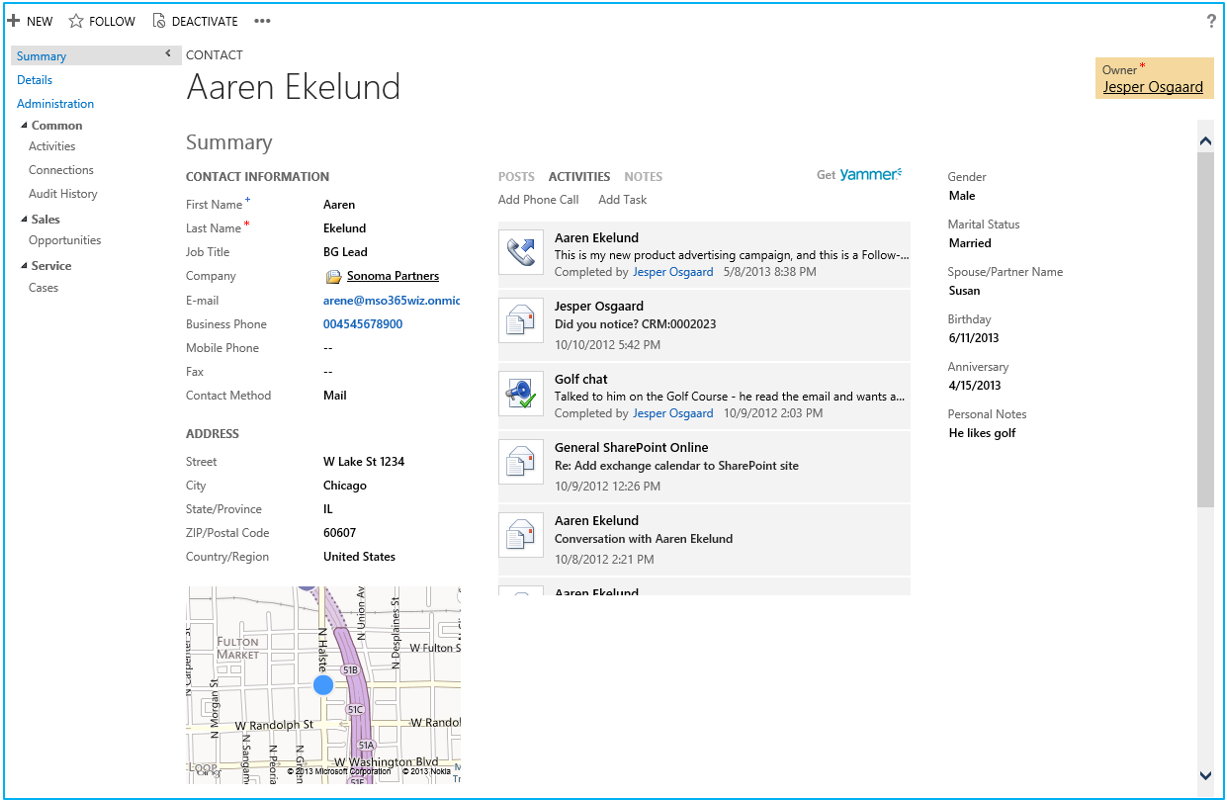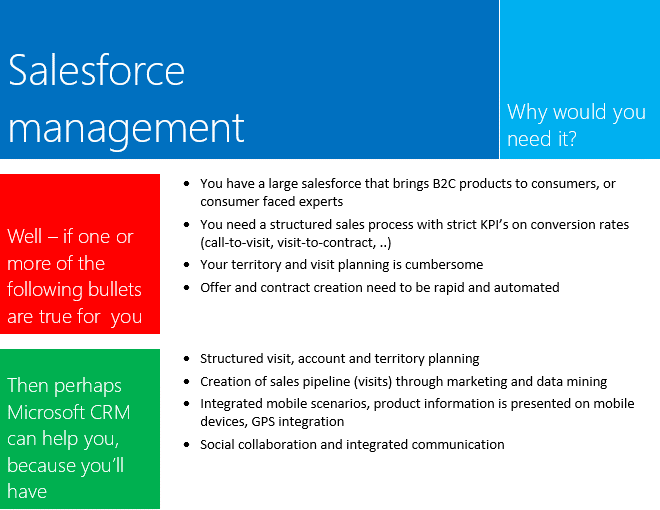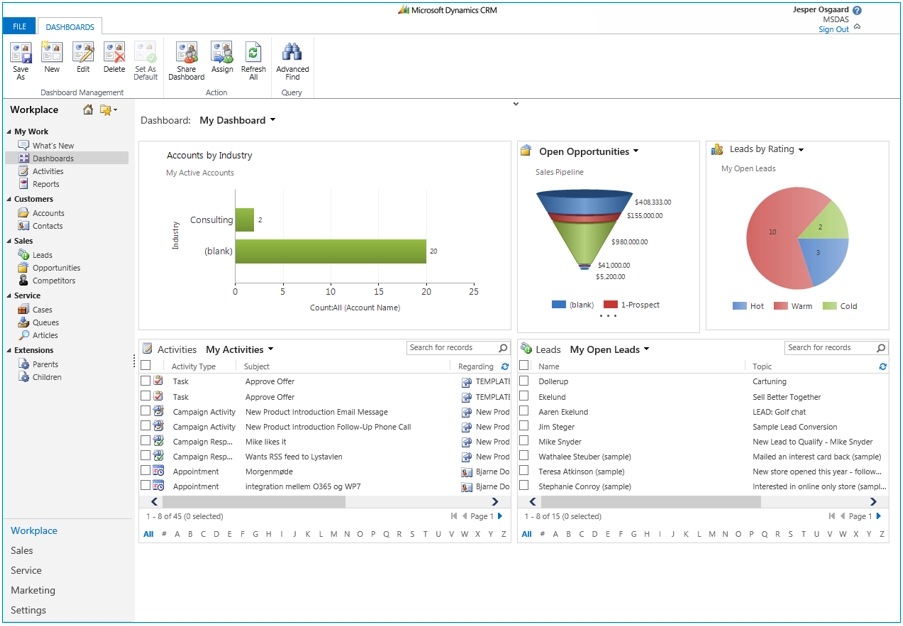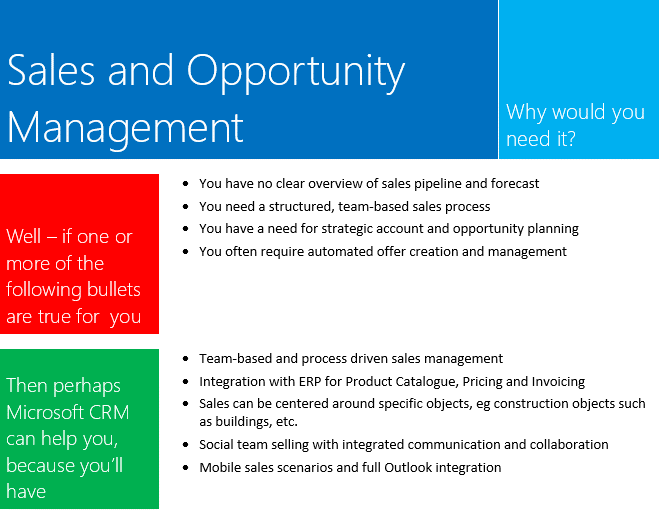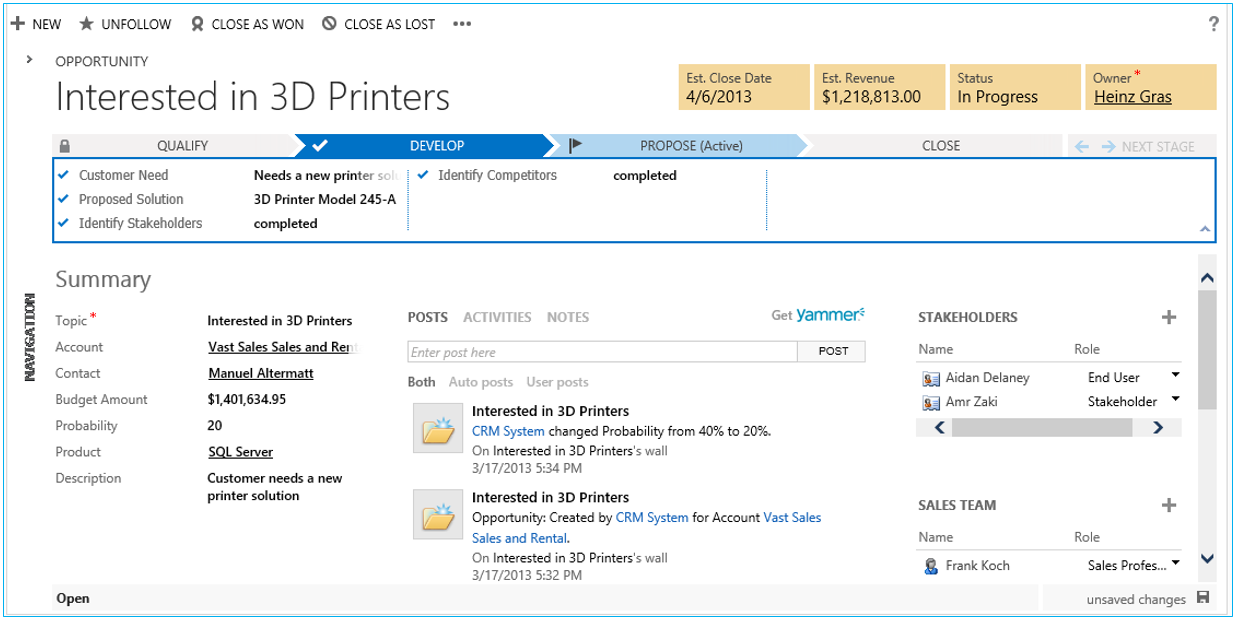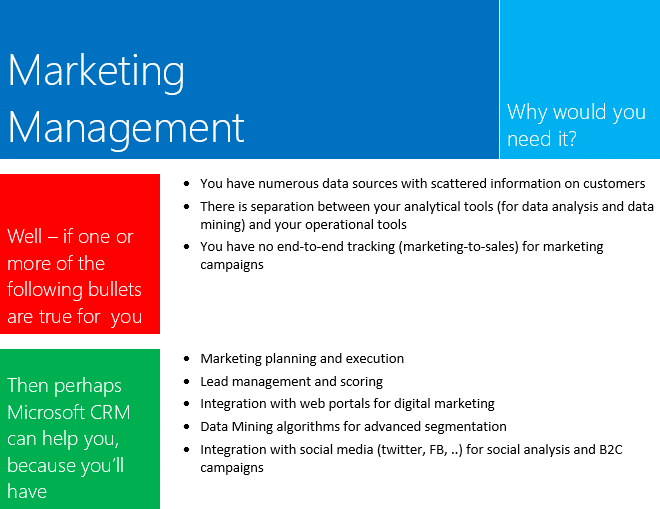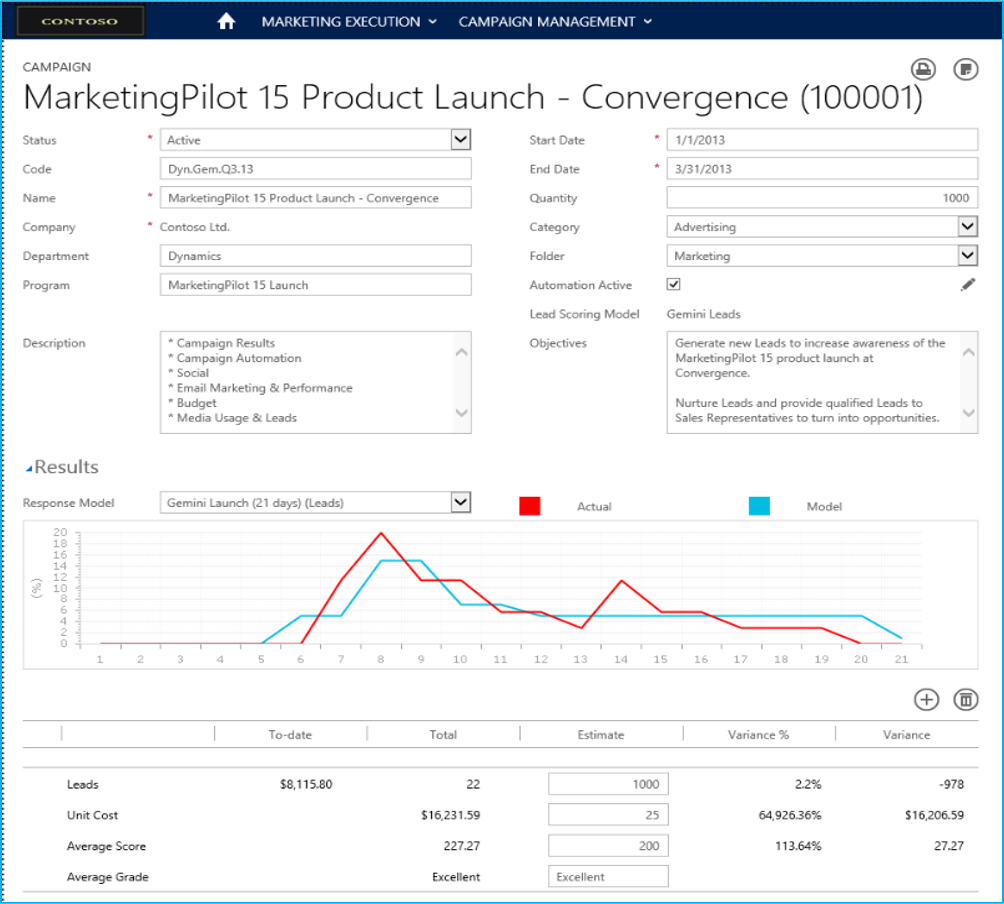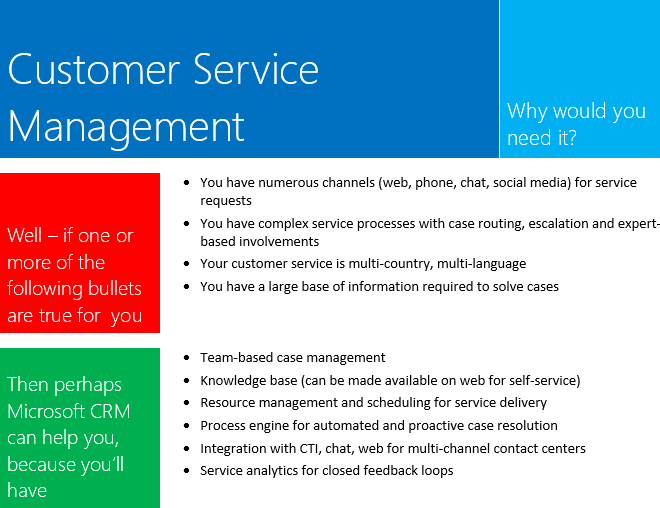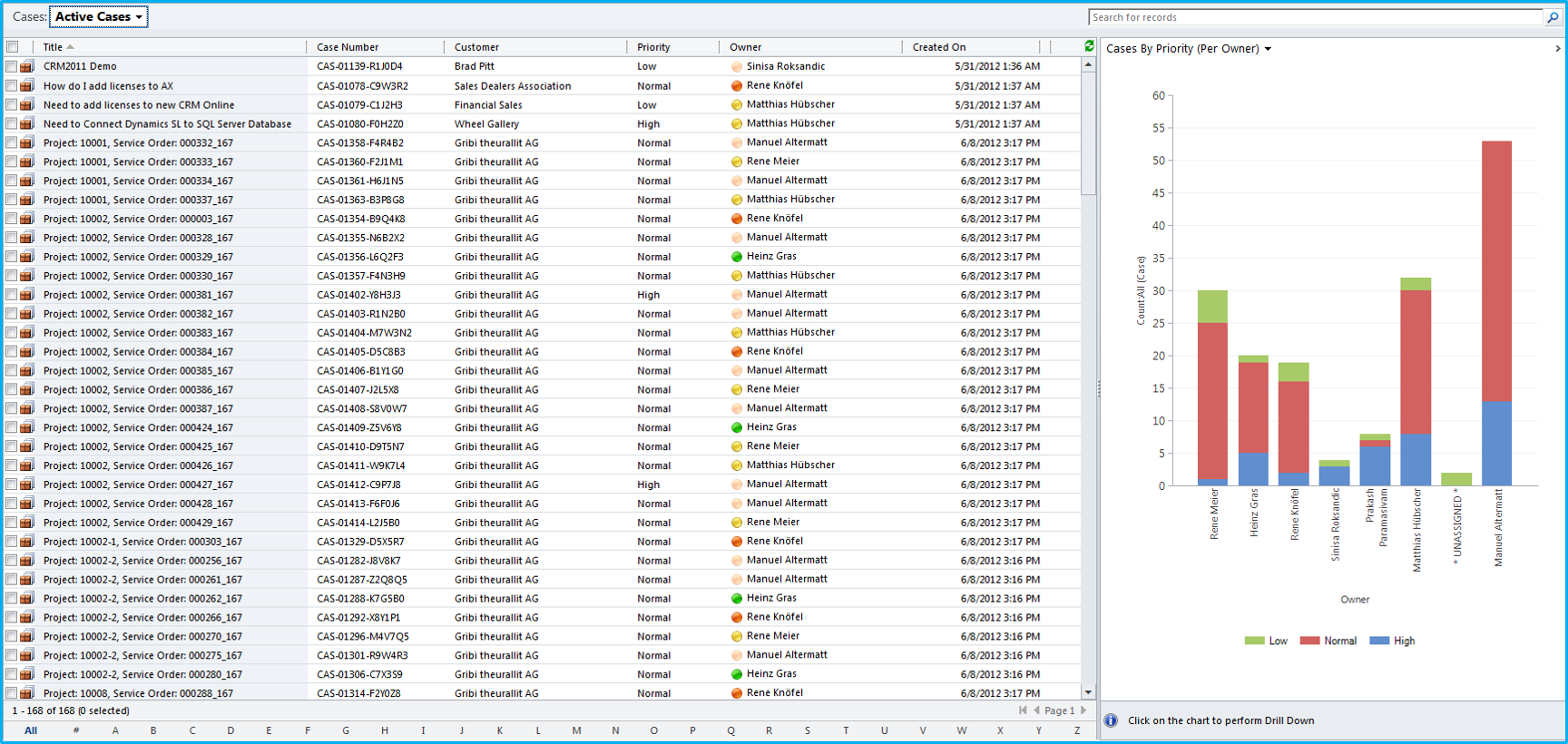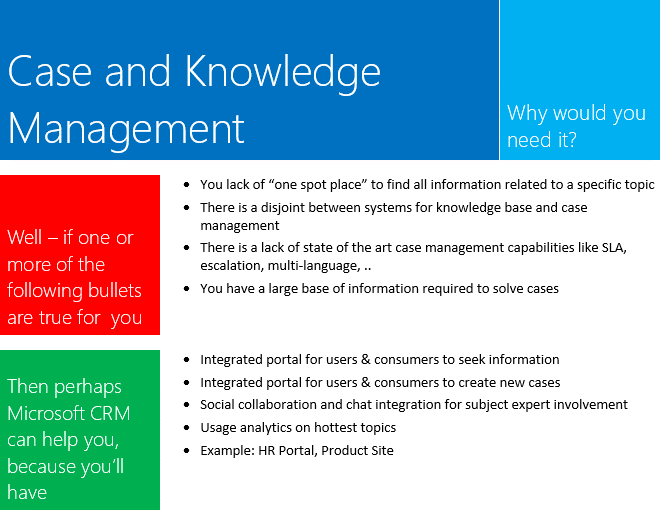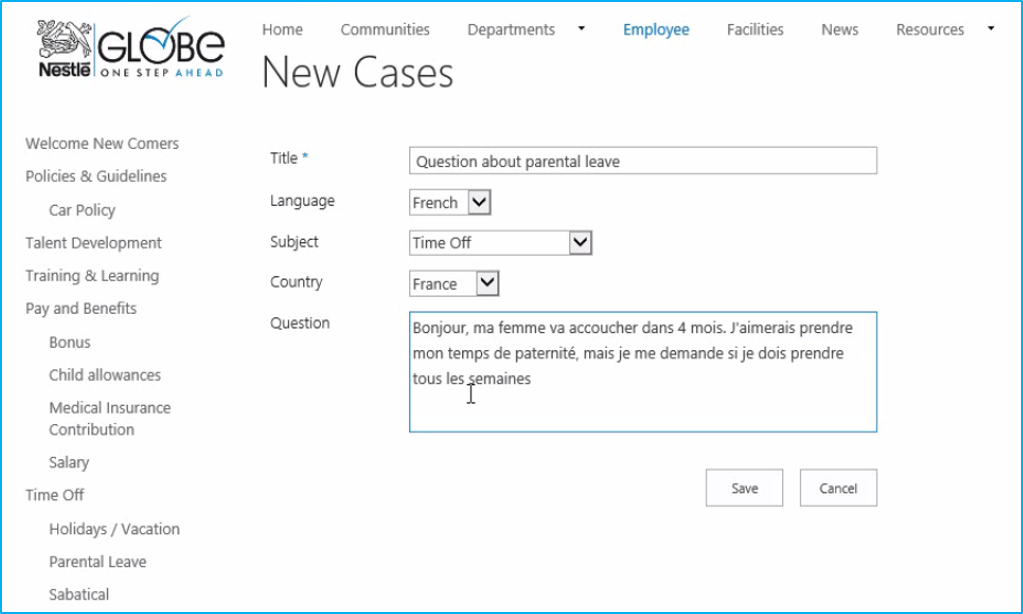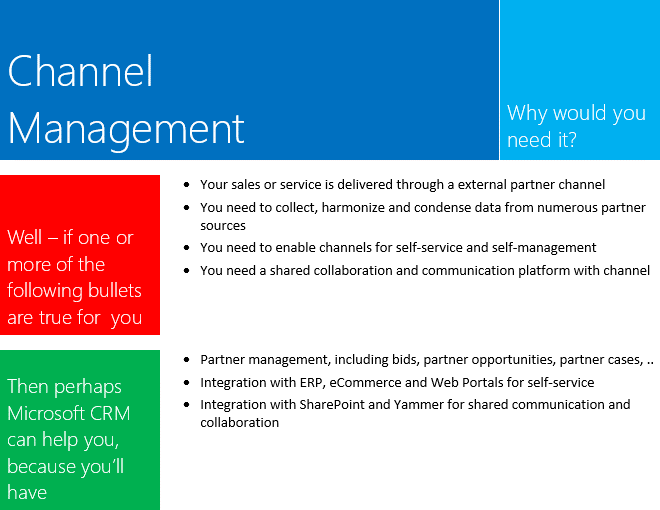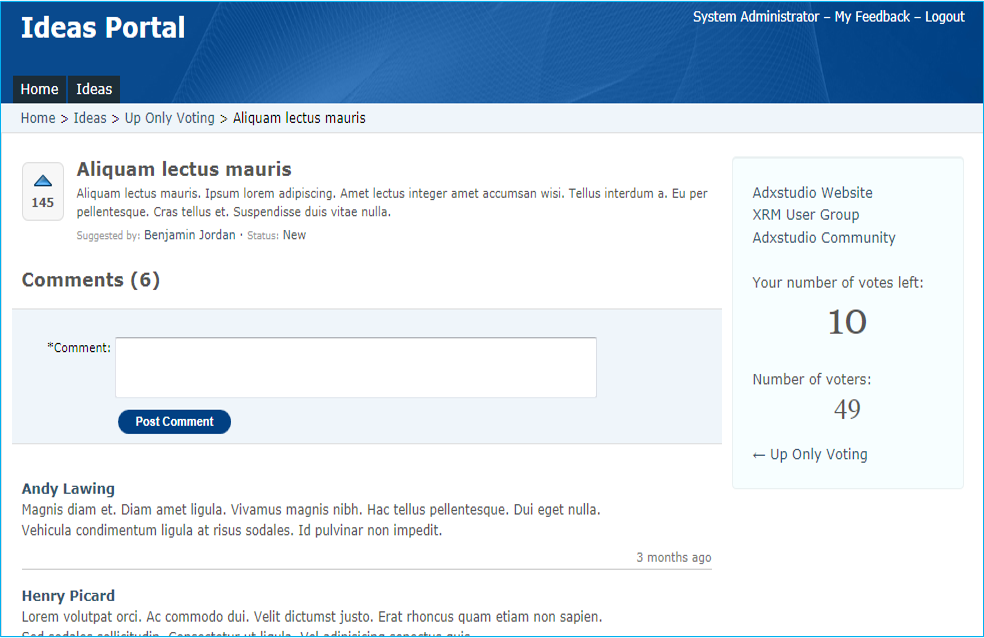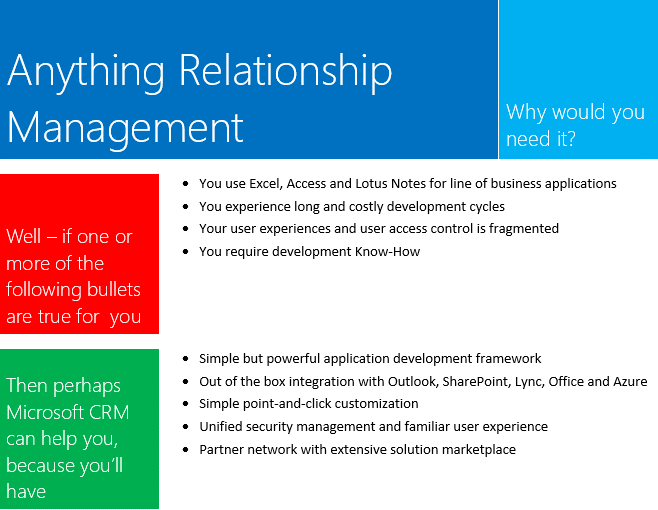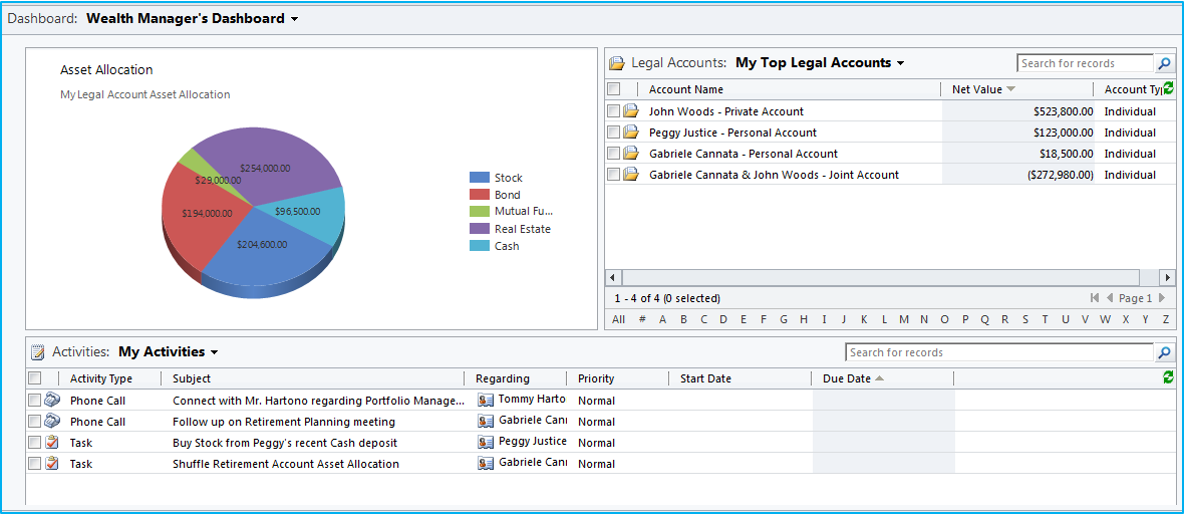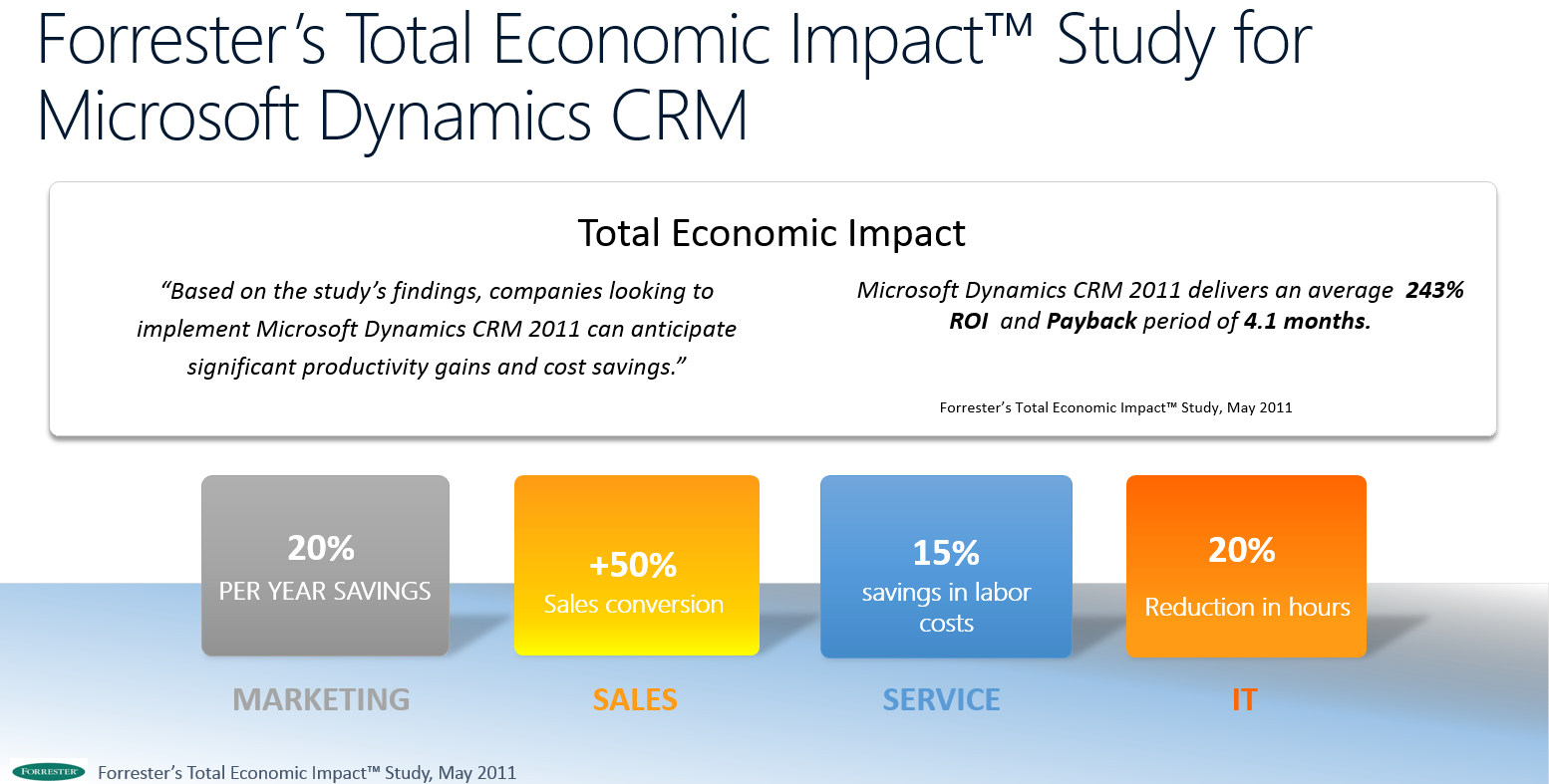CRM - Why Would You Need It?
Customer Relationship Management - or CRM - is on top of everybodys wishlist, they say, the analysts.
But what is CRM and why would anybody need it? Well - CRM from Microsoft is Less Talking, More Awesome. Read on and learn about eight Microsoft CRM capabilies - and why they might be just what you are looking for.
See note 1 below
See note 2 below
See note 3 below
See note 4 below
See note 5 below
See note 6 below
See note 7 below
See note 8 below
This is the end of the article. Thank you for reading this far.... oh, wait - I nearly forgot. How about the business case? Well, again - the analysts are pretty confident Microsoft CRM will be a sound investment for you (and so are we)
Notes
A few supplementary notes with regards to the above bullets. You can learn all about Microsoft CRM here
- Native integration with Outlook
You can use Dynamics CRM without ever leaving your Outlook (work with and track contacts, tasks, activities and emails). You can be productive using the Fluent User Interface - and the consistent ribbon based user interface requires minimum training. You can personalize your experience using the advanced personalization capabilities of Outlook (e.g. user-specific “My Sales Pipeline” view in the Outlook main screen). You can accelerate the lead uncovering process using the Social Media Connector, which helps to uncover new leads and identify influencers using variety of channels including social media like LinkedIn, Facebook, Twitter, etc. (e.g. a customer seeking corporate contact).
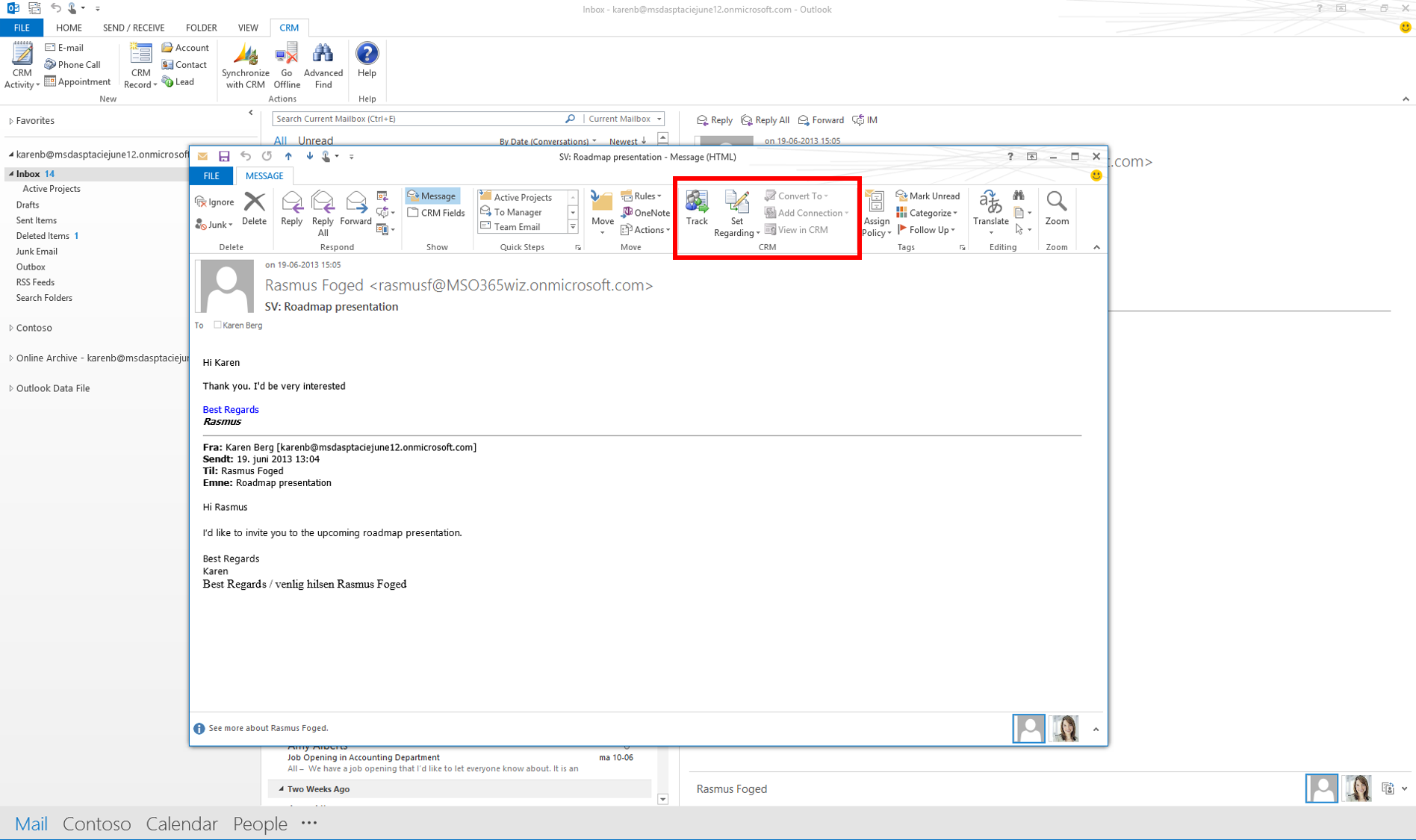
- Sales Force Automization
Leverage Planning, lead and opportunity management, account management, analytics, pipeline management, etc to enhance to productivity of your salesforce. - Sales and Opportunity Management
Structure your sales processes using the Sales Process Control. This control is provided as a guide to suggest certain actions to you to keep the sales on target towards completion. The proactive, in context suggestions will drive a structured sales process in an efficient way. - Marketing Management
Speed up campaign planning and execution, segmentation, leads management and tracking, analytics, data management, response management - Customer Service
Point-and-click tools for step-by-step workflow development for users to quickly automate common and repeatable processes (e.g. automatically assign activities to specific customer service agents - Case and Knowledge Management
Support case management, content and knowledge management, service analytics, service and resource scheduling, account management - Channel Management
Meet and interact with your customers and partners on the channels they want to meet you. Get the crusial insights from the social analytics and reporting capabilities in CRM - xRM
CRM is a flexible development platform for management of any type of relationships. You can accelerate the creation of Line of Business (LOB) applications using Microsoft Dynamics CRM as a flexible development platform. By leveraging the Microsoft Dynamics CRM framework (database, UI, workflow, reporting engine), a savvy user or business analyst can now accomplish what before would require a developer. In other words, no need for custom development or a developer.
See also
